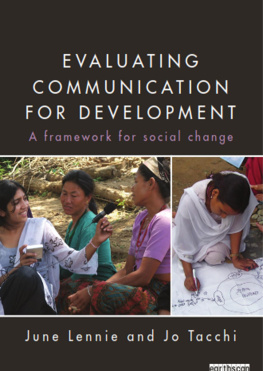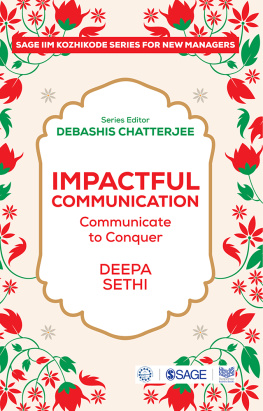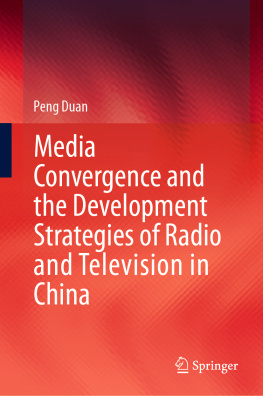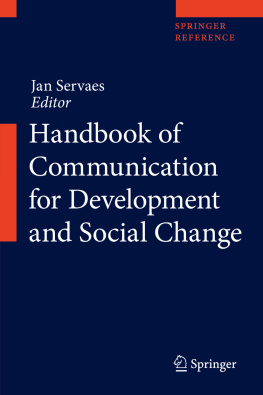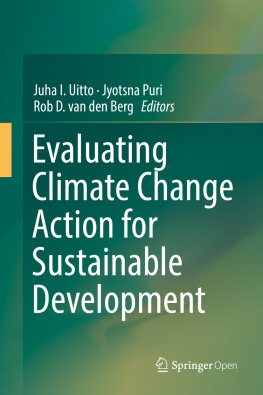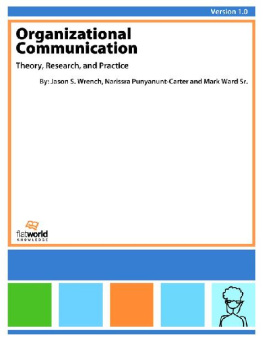Evaluating Communication for Development
Evaluating Communication for Developmentpresents a comprehensive framework for evaluating communication for development (C4D). This framework combines the latest thinking from a number of fields in new ways. It critiques dominant instrumental, accountability-based approaches to development and evaluation and offers an alternative holistic, participatory, mixed methods approach based on systems and complexity thinking and other key concepts. It maintains a focus on power, gender and other differences and social norms. The authors have designed the framework as a way to focus on achieving sustainable social change and to continually improve and develop C4D initiatives. The benefits and rigour of this approach is supported by examples and case studies from a number of action research and evaluation capacity development projects undertaken by the authors over the past 15 years.
Building on current arguments within the fields of C4D and development, the authors reinforce the case for effective communication being a central and vital component of participatory forms of development, something that needs to be appreciated by decision-makers. They also consider ways of increasing the effectiveness of evaluation capacity development from grassroots to management level in the development context, an issue of growing importance to improving the quality, effectiveness and utilization of monitoring and evaluation studies in this field.
The book includes a critical review of the key approaches, methodologies and methods that are considered effective for planning evaluation, assessing the outcomes of C4D, and engaging in continuous learning. This rigorous book is of immense theoretical and practical value to students, scholars and professionals researching or working in development, communication and media, applied anthropology, and evaluation and programme planning.
June Lennieis a Senior Research Associate in the School of Media and Communication at RMIT University, Australia. Her work has focused on the development, application and meta-evaluation of participatory research and evaluation methodologies and ICTs for social change, sustainable community development, and rural women's empowerment. She has co-developed several participatory evaluation frameworks, toolkits and resources.
Jo Tacchiis Deputy Dean of Research and Innovation in the School of Media and Communication at RMIT University, Australia. She is a media anthropologist with a special interest in radio, digital media and communication for development. Her work in this area has been centrally concerned with issues around culture and social change, and in developing suitable methodologies for investigating this.
This book breaks new ground by presenting a powerful and persuasive experience-based statement of the case for recognising communication and its evaluation as central to good development practice and social change. It hits many nails on the head, and draws on many sources and insights. Contriving to do this clearly and coherently is a tour de force. By skilfully drawing together and interweaving the threads and themes of complexity, participation, emergence and holism, and combining these in an approach that is critical, realistic and learning-based, the authors serve the development community well. They present a coherent and comprehensive alternative to the currently dominant approach of donors, adding impetus and credibility to the big push forward to more grounded, cost-effective and sustainable development practice.
Robert Chambers, Research Associate, Institute of Development Studies, University of Sussex, UK
We are told so often that communication for development cannot be evaluated, meaning: crops or cell phones are much easier to count. We've heard so much about the lack of indicators to measure processes of social change. By experience we know how hard it is for development managers to understand the role of communication as a participatory process and not as institutional visibility or information dissemination. Now, with this book, those who are reluctant to accept the role of communication in development and social change will lack good arguments. It presents a comprehensive framework for understanding how C4D can be evaluated and why it is indispensable for long-term sustainable development. This book is an extraordinary contribution to understanding C4D, not only from the evaluation perspective. It was so much needed.
Alfonso Gumucio-Dagron, Communication Specialist, Bolivia
This work valuably weaves together insights from years of experience with emerging trends in related fields, including complexity and systems thinking, to propose a practical framework for evaluating communication for development. It is an indispensable, accessible and much-needed contribution, to guide evaluation practice in communication for development contexts and beyond.
Ailish Byrne, Learning & Development Specialist, UNICEF Somalia
This is a must read for both academics and professionals in the field of communication for development. For scholars, to understand the real problems in the real world. For practitioners, to learn that muddling through has never been a viable way to sustainable social change.
Jan Servaes, UNESCO Chair in Communication for Sustainable Social Change, USA

